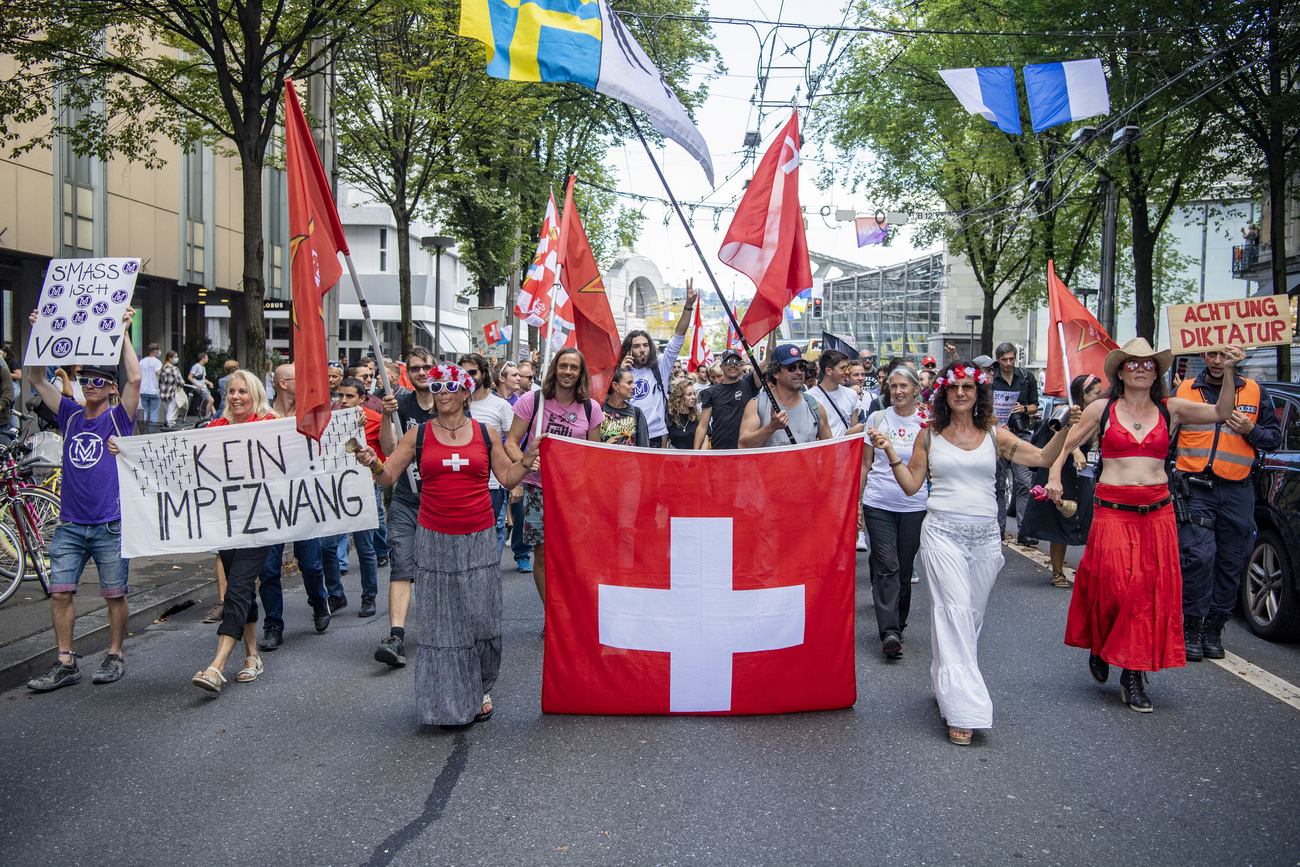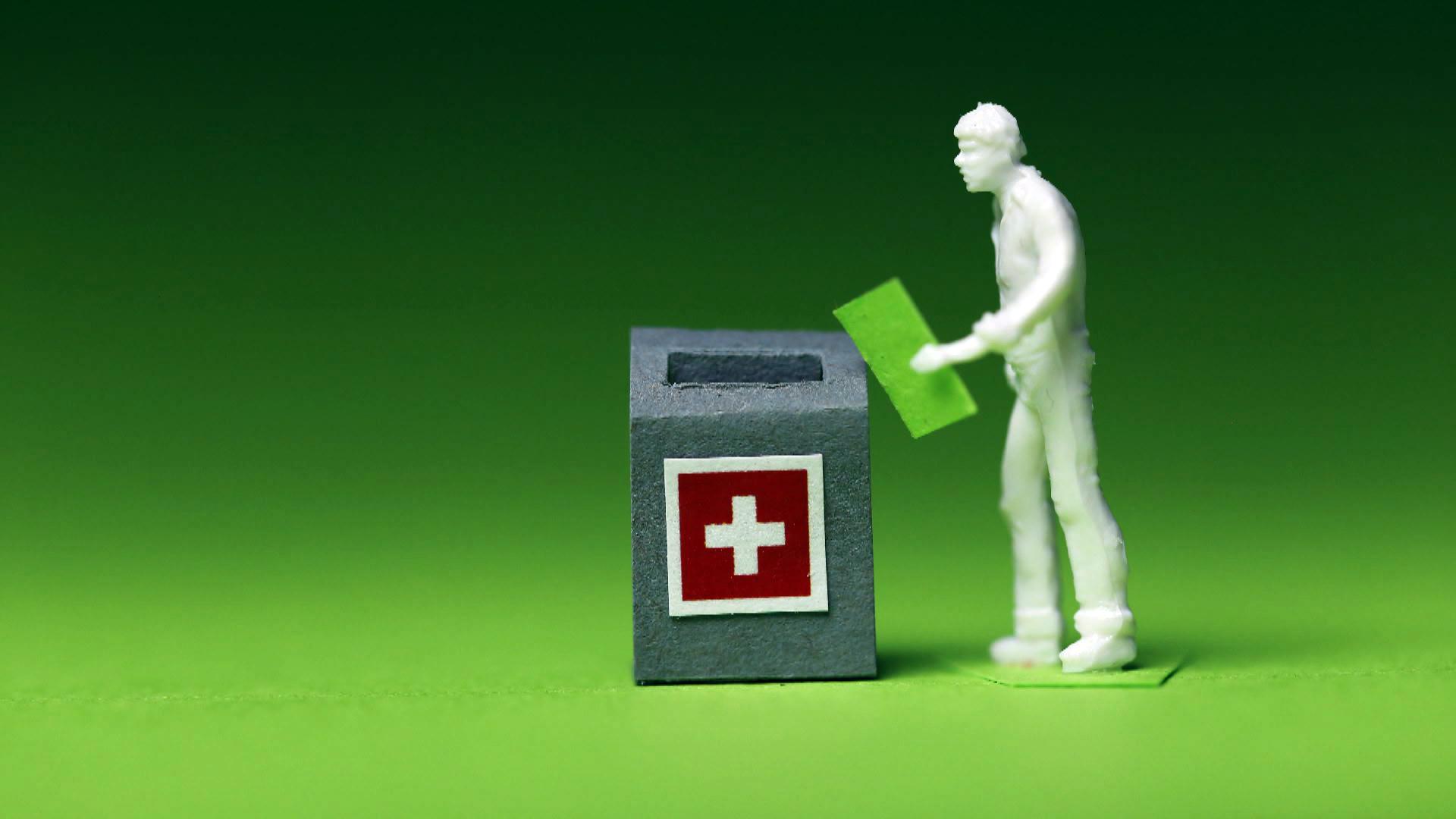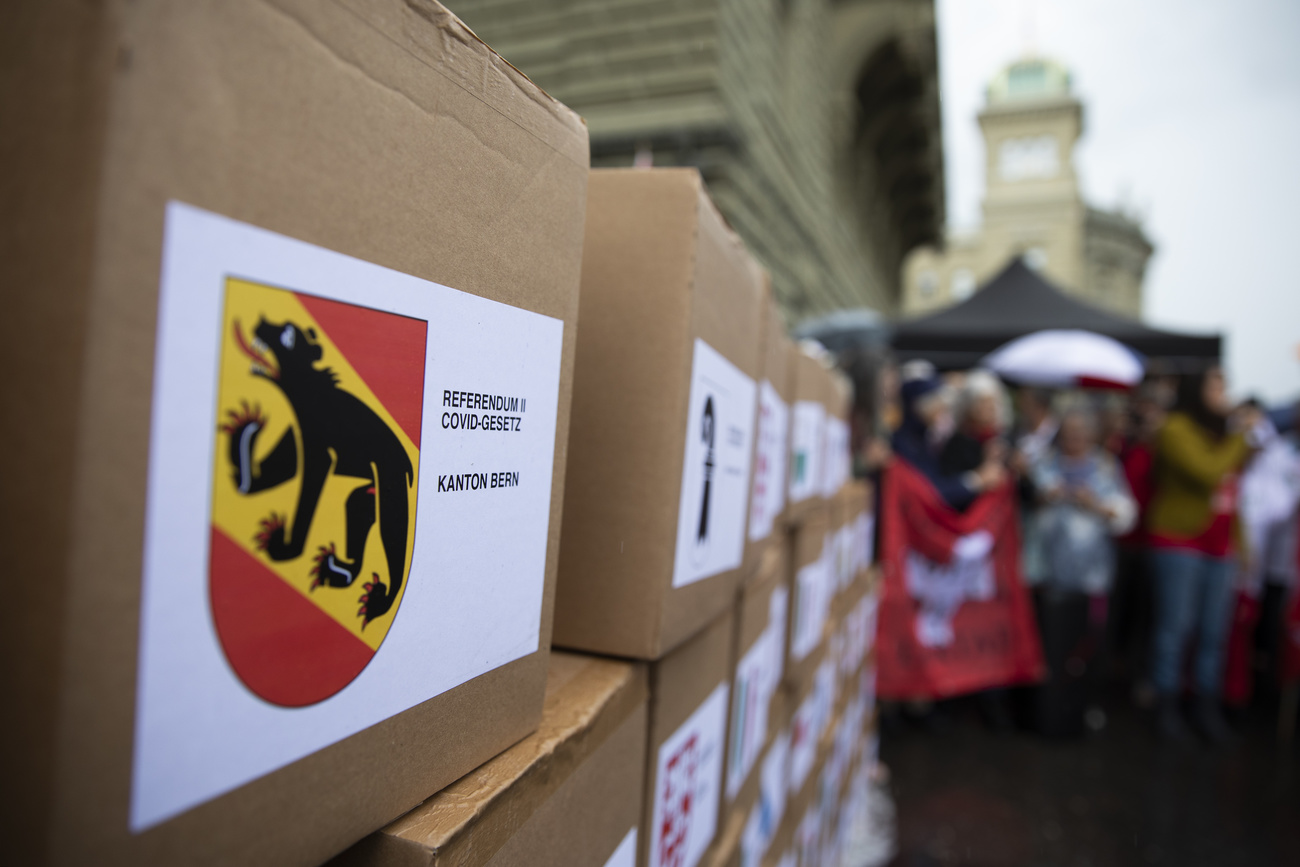Fate of Covid certificate to be decided at the ballot box

As in many European countries, opponents of the vaccination certificate in Switzerland have taken to the streets. But the Alpine nation is unique in giving citizens a chance to express their views on the future of these controversial passes in a nationwide vote.
“Freedom, freedom!” For weeks, opponents of Covid restrictions have chanted this on the streets of the biggest Swiss cities. On November 28, they will have the opportunity to make their voices heard at the ballot box.
Why another vote on the Covid law?
On July 8, three referendum committees submitted a total of 74,469 signatures judged valid by the Federal Chancellery opposing the March 19, 2021 amendmentExternal link to the Covid-19 law. These citizens’ movements, which arose during the pandemic and have no clear partisan affiliation, criticise the extension of the government’s power and in particular, the Covid-19 certificate, compulsory since September 13 to access indoor spaces.
This will be the second time in a little less than six months that the Swiss people give their verdict on the same law – a first in the history of Swiss direct democracy. On June 13, after a first referendum, the Covid-19 law was accepted by 60.2% of voters and only rejected by some cantons in central and eastern Switzerland, where resistance to the government’s measures to combat coronavirus is concentrated.

More
What’s a referendum?
However, this time around, the campaign for those in favour of the law will be more difficult. The question of financial aid granted to businesses and people affected by lockdowns during the crisis, which was at the centre of discussions before the first vote, has since been eclipsed by the debate about individual freedom.
The political climate has also become much harsher in recent months. Politicians, including Interior Minister Alain Berset, have had to be given police protection, and some demonstrations by opponents of health measures have required robust intervention by law enforcement.
What measures are affected?
The referendum particularly targets the Covid certificate, which has been compulsory since September 13 for admission to restaurants, gyms, cinemas, and big cultural and sporting events. It also affects the extension of some financial aid, even if the referendum initiators haven’t made that a campaign issue.
However, the referendum project doesn’t affect vaccination or other health measures imposed by the government. Mask-wearing mandates or forced closures, which are covered by the law on epidemics approved by the people in 2013, can still be implemented or reintroduced if the epidemiological situation requires them.

More
Coronavirus: the situation in Switzerland
What are the main arguments in favour of the law?
The Covid certificate has allowed the population to return to a social life that is as close to normal as possible, the government says. It is an efficient way to confine social interaction to those who are not contagious or have very low chances of being contagious.
On an economic level, the vaccination pass allows economic activity and saves jobs. The document also facilitates travel in Switzerland and abroad.
Finally, thanks to the law, companies continue to benefit from supplementary support in case they are forced to furlough staff.
What are the main arguments against?
Opponents believe the Covid certificate discriminates against unvaccinated people and leads to an indirect obligation to get vaccinated. The government’s action is designed to push the population to get vaccinated, given that Switzerland has one of the lowest vaccination rates on the continent. In their view, this measure divides society and threatens social peace.
The “no” camp denounces the government’s “health authoritarianism” and “an anti-democratic and dangerous” extension of its powers claimed under this law.
The initiators of the referendum also warn against extensive electronic surveillance of citizens as a result of electronic contact-tracing anchored in the new law.

More
All you need to know about the Swiss Covid certificate
Who is for, who is against?
The Swiss People’s Party is the only governing party opposed to the latest amendments to the Covid law. At a party congress in the summer, delegates rejected the law by a clear majority of 181 votes to 23. The party also supported the referendum launched by three citizens’ committees.
The government and a large majority in parliament support the law. However, Finance Minister Ueli Maurer, a member of the People’s Party, stands accused of a breach of collegiality with fellow ministers for telling members of his party in early September that the government had “failed in the Covid crisis.” He also sparked controversy by appearing in a sweater of the “Freiheitstrychler”, a group opposed to measures to fight the coronavirus.
What happens if the law is rejected?
If the law is rejected, the amendments adopted by parliament in spring will be revoked as of March 19, 2022, one year after they were adopted, according to the federal constitution. So there would no longer be a legal basis for issuing and inspecting Covid certificates. The initiators of the referendum are, however, in favour of a voluntary Covid certificate to facilitate travel abroad.
Financial support for big events would also end next spring. The government managed to avert a plan to end supplementary daily allowances for the unemployed and the option to prolong the right to furlough payments to 24 months.
Finally, the government will no longer be permitted to launch funding programmes for the development of drugs or other important medical goods.
Translated from French by Catherine Hickley

In compliance with the JTI standards
More: SWI swissinfo.ch certified by the Journalism Trust Initiative










You can find an overview of ongoing debates with our journalists here . Please join us!
If you want to start a conversation about a topic raised in this article or want to report factual errors, email us at english@swissinfo.ch.